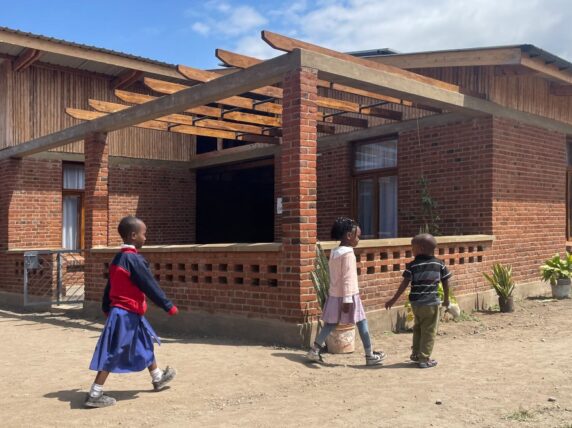10 highlights from Bond Conference 2019
We held the biggest Bond Conference and Awards to date on 18-19 March.
1,148 people gathered at the QEII Centre in London to interrogate the most pressing challenges facing global civil society. We brought together NGOs, donors, government and private sector from across the international development and humanitarian sector to generate new ideas to drive positive change around the world.
We had 111 thought-provoking speakers, including Tanni Grey-Thompson, Indian trans activist Abheena Aher, Kenyan human rights activist Maina Kiai and South African author Sisonke Msimang. #BondConf trended across the UK and over 2,000 people tuned into our livestream.
With 34 compelling sessions, it’s hard to pick just 10 highlights from two days of energetic debate and determined collaboration. But I’ve rounded up my key takeaways from Europe’s biggest international development event.
1. Driving equality in our own workforces
Despite NGOs’ crucial work in tackling inequalities at home and overseas, our workforces still face challenges in diversity, inclusion and unequal pay.
Fab session on female leadership at #BondConf – why are only circa 35% of leaders in NGOs women when we make up 68% of employees in the sector? “Equality is not just getting in an organisation but getting ON in an organisation” @bondngo #internationaldevelopment #femaleleadership pic.twitter.com/MQBUkbDlEN
— Hannah Copeland (@copers11) March 19, 2019
Female leaders from across international development discussed how we can tackle the structures within and beyond organisations that hinder a culture of equality.
.@FranRLon shared @Amref_UK s work commissioning a series of photos of women telling their stories and depicting their strengths. Following this campaign she saw an increase in people applying for jobs citing their African heritage and these images. #BondConf
— Lauren Kinnaird (@laurenkinnaird3) March 18, 2019
We asked attendees what they thought the biggest challenge to diversity and inclusion in our sector are, check out the video here.
2. Telling real stories about real people
Too many of the stories the sector tells are inauthentic and designed to fit our organisations’ needs or our donors’ expectations. People across the conference highlighted that NGOs need to bring in new storytellers to tell their own stories.
“Changing these stories through literally creating new stories and images, won’t happen if we just criticise. We have to look at how those stories are made. At who takes the pictures. At who tells the stories. And who we think those stories are intended to influence,” said author Sisonke Msimang in her keynote address.
If NGOs want to break stereotypes to tell authentic stories, our speakers recommended a partnership approach to storytelling that reconfigures content creation as a truly collaborative process between the NGO and contributor.
In the Rewriting the media’s tale of aid session, media experts highlighted that building trust and communicating complexity are key to rearticulating the UK press’s simplistic story of aid.
3. Penny Mordaunt says FCO and DFID won’t be merged
International development secretary Penny Mordaunt told us to “chill out” regarding the rumoured merger of the Department for International Development (DFID) with the Foreign and Commonwealth Office (FCO). She confirmed that there “are no plans at all for DFID to be hoovered up by another government department or turned into something else”.
Mordaunt also announced the launch of DFID’s Great Partnerships initiative, which purports to “connect people, our discoveries, talents, skills and knowledge to the relevant problems and opportunities across the globe”. The initiative aims to bring in the private sector to help achieve the Sustainable Development Goals (SDGs), highlighting DFID’s partnership with Unilever to help low-income households.
4. Better financial regulation after Brexit?
ODI’s Jesse Griffiths highlighted that the EU could be in a stronger position to regulate financial institutions once the UK leaves the EU, as the UK has consistently led the way in watering down the EU’s attempts to regulate tax havens and moneylaundering.
Also make sure you know where your data servers are stored, because you could lose access if they’re in the EU.
Actions for civil society to prepare for #Brexit – support your workforce, and audit your #data to be ready for changes to data access and flow. And find your voice – think about the role of civil society in addressing divisions. #BondConf
— Christine Wilson (@SonicWhirls) March 18, 2019
5. Shifting the power
“There is an assumption made by big organisations or by donors that locals are not interested in impact and yet the reason we work is to have an impact. I mean, if we didn’t have an impact, we would be disorientated entirely. Impact is something we seek and what we’re also looking for,” proclaimed Maina Kiai in his keynote address.
Throughout the conference, we discussed the power of local organisations and the importance of their knowledge. As Abheena Aher pointed out: “Before you can understand a community, you have to unlearn what you know about the community. When you do that you learn new things.”
In Learning from the global south, practitioners from southern CSOs delved into how INGOs can help redress the imbalance of power and resources, highlighting the need to grow African philanthropy.
Understand what and who local NGOs are and underlying passion and behaviour and capacity .
.. And Manage power. Appreciate local NGOs have something to offer. Help grow African philanthropy and exit responsibly #shiftthepower #BondConf @KCDF— Caesar Ngule Weka (@Caesarngule) March 19, 2019
Speakers also questioned the role of INGOs in supporting local CSOs to be sustainable and how this impacts their own business models. Former Oxfam deputy chief executive Penny Lawrence argued that big INGOs need to move from managing each step of the aid supply chain if they want to survive, calling instead for interdependent groups with an even division of labour and expertise.
Subscribe to our newsletter
Our weekly email newsletter, Network News, is an indispensable weekly digest of the latest updates on funding, jobs, resources, news and learning opportunities in the international development sector.
Get Network News6. Don’t please funders
“Donors need to start understanding, we are on an equal level, they need the local NGOs to be able to deliver. Without the local NGOs, the donor is nothing. So I think they need to be seen as partners,” said Barbara Nost.
If we want to really empower local organisations, funders need to stop hampering their work with complicated logframes and exhaustive indicators.
7. The SDGs aren’t just about filling gaps
The SDGs are our chance to advocate for real change, but speakers from across sectors and nations asked whether we’ve been critical enough in trying to achieve the goals. Lord McConnell MP asserted that the goals have the potential to solve the root causes of development issues and provide a crucial focal point for measurement.
.@iara54 of @InescOficial tells #BondConf that civil society must collaborate and proactively and forcefully participate in the #SDG negotiations to give a voice to those who are not being heardpic.twitter.com/pCPUSxE9mP
— CAF (@cafonline) March 19, 2019
8. Tackle climate change together
Senior leaders from environment and development NGOs identified new approaches for tackling climate change in the next 10 years, which highlighted the urgent importance of cross-sector collaboration.
All governments must treat climate change for the emergency that it is and activate our emergency apparatus; as citizens we need to get behind that. – @farhanaclimate
— Rachel Musselle (@rachel_xl8) March 18, 2019
9. Stop speaking for the global south
“We cannot start speaking or continue speaking for people. People can speak for themselves,” said Maina Kiai.
We need to confront the fact that we (nodding to #bondconf audience) are the elite… We have got too comfortable, too caught up in log frames, siloes – forgotten about solidarity, people… @Maina_Kiai challenging us to to address issues of power #shiftthepower
— Jenny Hodgson (@hodgsonjj) March 19, 2019
INGOs need to stop speaking on behalf of the global south if we want governments and donors to listen to local CSOs and their needs. Campaigners called for civil society to reframe the current negative narratives around activism to reverse the increasing vilification of global civil society.
10. Celebrating our successes
We focus so much on the challenges and problems in the world, that we often forgot to appreciate the amazing work we do. The Bond International Development Awards on Monday shone a light on the life-changing people and projects in the Bond network. Check out the winners in all the eight categories, as well as the recipient of our Special Recognition Award, Baroness Glenys Kinnock.
More highlights from #BondConf
- Check out our visual minutes, a graphic representation of key themes.
- View the plenary speeches and our highlights video on YouTube.
- See the photos from the conference and the awards winners.
- Check out #BondConf on Twitter.
- Follow our podcast on Apple or Google Play to hear upcoming episodes from our conference speakers.
Category
News & ViewsThemes
Bond news



